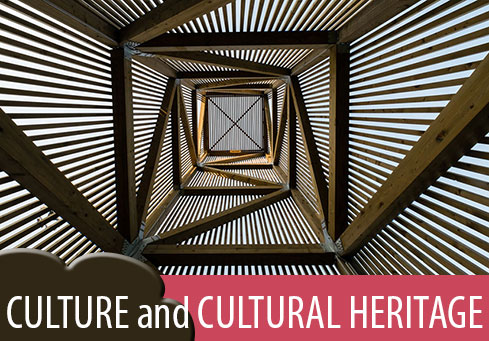Technical Co-operation and Consultancy Programme

It adopted rules governing the provision of the Programme which was expanded substantially with the ratification in 1985 of the Granada Convention (Convention for the Protection of the Architectural Heritage of Europe) and in 1992 of the Valletta Convention (European Convention on the Protection of the Archaeological Heritage).
The Programme is one of the Council of Europe’s principal tools of intervention in the field of heritage, with forty years’ experience acquired through more than 128 projects or activities implemented in 33 countries through 807 actions in all carried out by 2 775 experts. The objectives are continuously being revised according to the evolution of the priorities of the Organisation and the needs expressed by the member states regarding the enhancement of the environment and heritage as one of the pillars of sustainable development.
 A cultural process and project
A cultural process and project
The programme meets governments’ demands with regard to complex problems of heritage conservation, protection, rehabilitation, enhancement or management at national, regional or local level. It seeks to demonstrate, by means of concrete action, the impact of the principles upheld by the Council of Europe and to accompany the improvement of the way in which institutions operate in order to ensure the sustainability of conservation and enhancement policies and strategies implemented for the development of communities.
The methodological purpose of the Council of Europe’s technical co-operation programme reflects the deep changes affecting the whole of society today in proposing a transversal and integrated approach of sustainable development, which places the importance of the human dimension at the centre of its actions, taking into account the following: regional planning (urban and spatial planning); cultural heritage (monuments, architectural ensembles and cultural landscapes); the environment and the protection of nature (biological diversity and landscape); regional and local development (economic activity and job creation); culture (defence and promotion of identities, cultural diversity, society’s value system); cultural tourism; social policies (social justice/cohesion/solidarity) through the improvement of the quality of life (improvement of housing, infrastructures, public spaces, prevention of natural catastrophes, management of post-conflicts, etc.)
 Action in the field and political cooperation
Action in the field and political cooperation
Co-operation projects concern mainly the development of long-term intervention programmes and the definition of priority strategies and actions which aim to improve the living standards of the populations concerned. The projects are chosen to serve as models (pilot projects), as an experiment for new management methods and as a framework for the elaboration of innovative concepts.
Although the activities are based on concrete actions, they mainly target national policies in encouraging States to commit themselves to a process of institutional reform and the strengthening of operational mechanisms and project management tools. These technical, administrative and legislative co-operation activities concern mainly: follow-up of the Council of Europe conventions, elaboration of standards and best practice; institutional capacity-building, elaboration of management and strategic tools accompanied by appropriate transfers of competencies affected through professional and institutional networking; elaboration of operational development strategies and programmes as a contribution to the improvement of the environment and living standards and as a factor of dialogue, reconciliation and tolerance; contribution to education in democratic citizenship and promotion of local and regional democracy, through a participative process and the elaboration of projects respecting principles and rules of law; protection and integration of minorities and of vulnerable groups in a spirit of solidarity, social cohesion and social justice.
 Legislative Support Task Force
Legislative Support Task Force
The Legislative Support Task Force, created in 1997 and composed of international experts, is competent to deal with legal frameworks, procedures, administrative directives, divided laws, sub-laws, policies, strategies, and their implementation, codes of good practice on the state of the art, in reference to the European standards related to the protection of the cultural and natural heritage. The Legislative Support Task Force also considers other legal texts, such as; environmental protection and environmental impact assessment, spatial and urban planning, construction and development, infrastructure service provision, ownership of real property, taxation and funding measures, criminal codes, etc.
The Task Force may also consider related problems of administrative organisation and associated policy procedures and, as appropriate, heritage funding where this is linked to legal and administrative protection mechanisms. Similarly this competence extends to matters concerned with the movable heritage in order to ensure democratic conditions for the protection of and access to historic objects and to facilitate appropriate regulation methods concerning the circulation of such objects and their removal from national territory.



